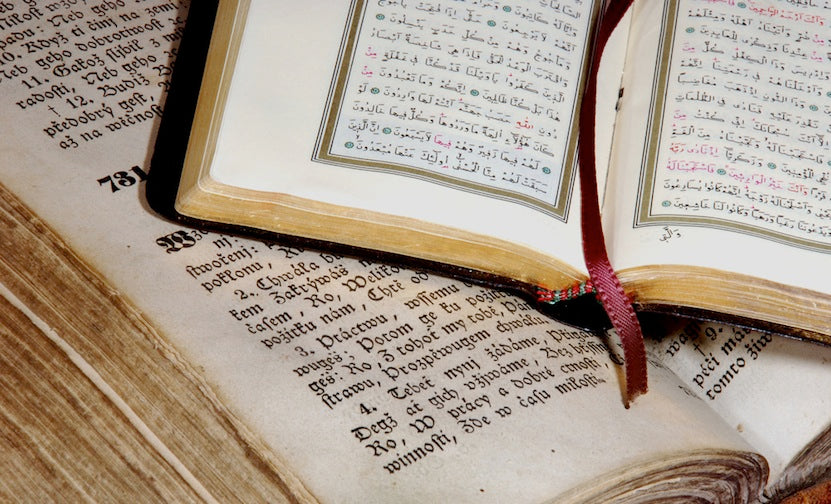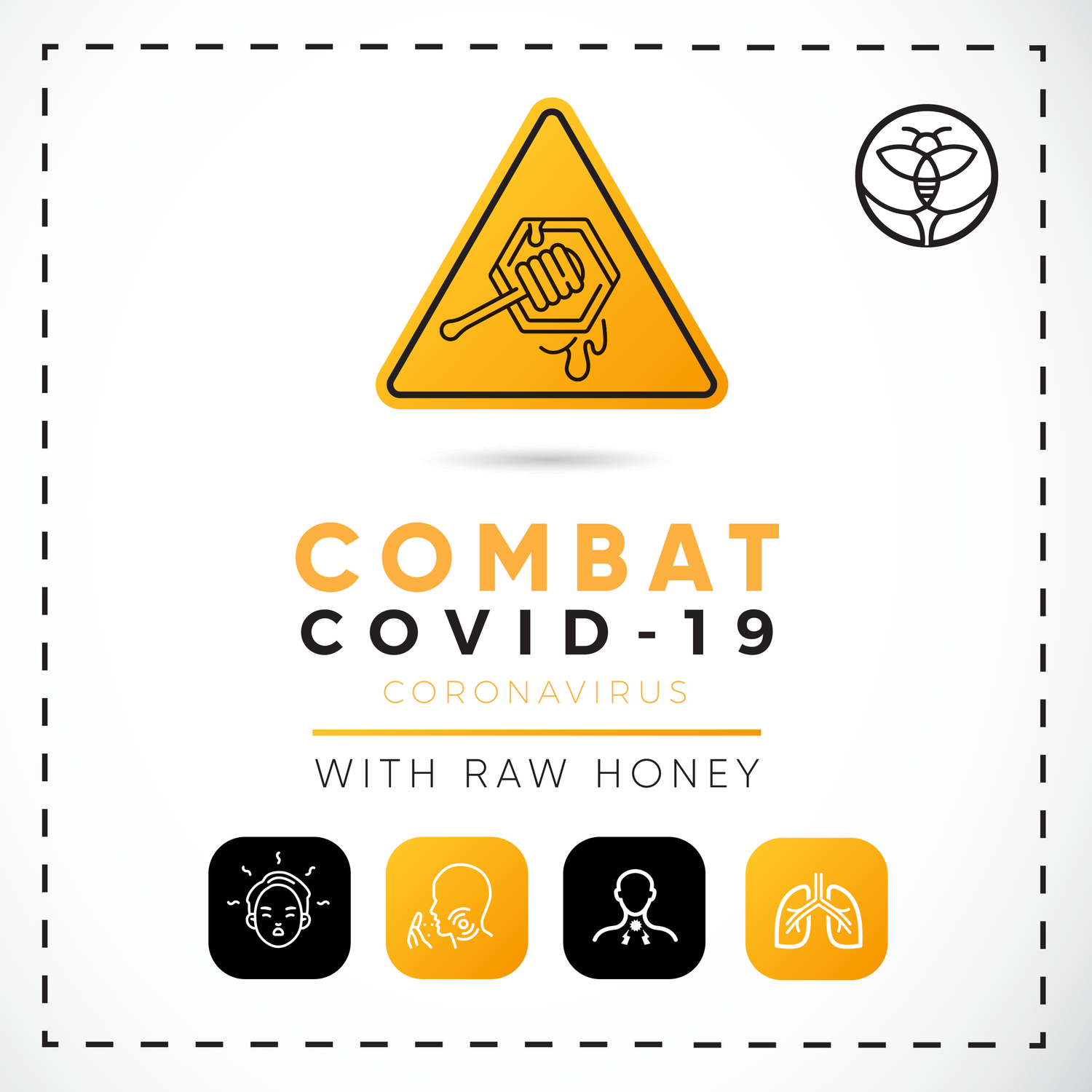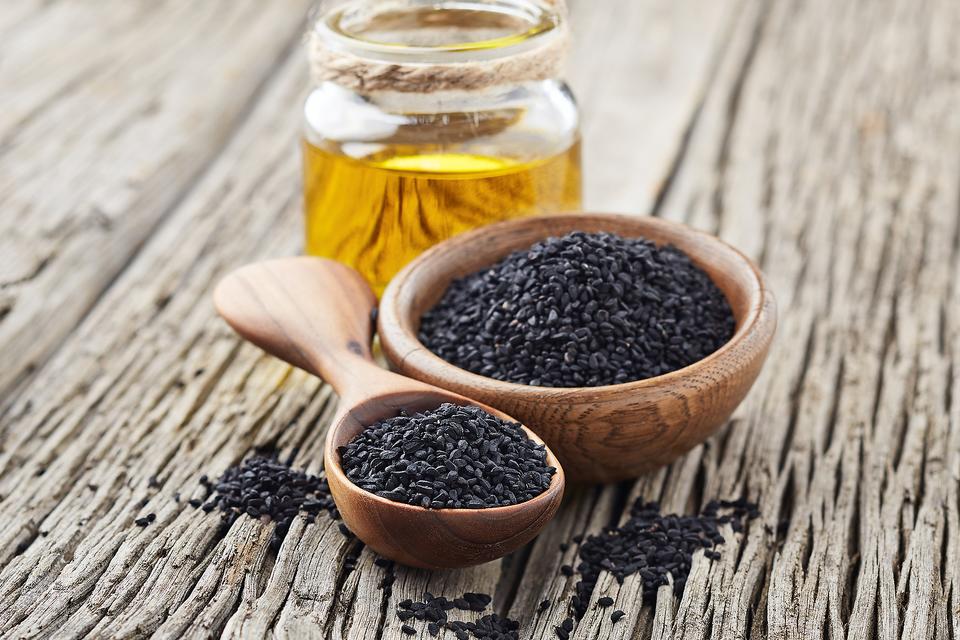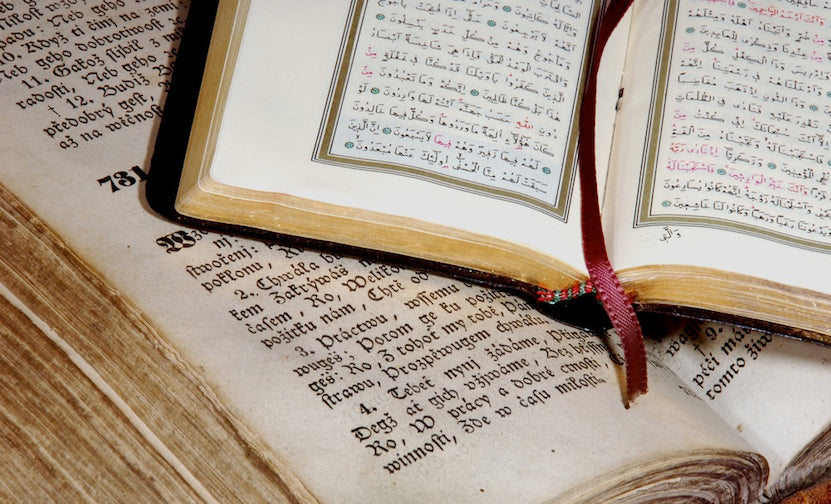John The Baptist survived in the wilderness on a diet of honey, Jewish traditions believe honey improves vision and wisdom, and the Quran has an entire chapter dedicated to the honey bee.
Modern scientific research, clinical studies and laboratory analysis has confirmed the magic-like effect that raw honey has on the human body.
However, honey has been considered a superfood for thousands of years in many religions of the world: Abrahamic faiths as well as Hinduism, Buddhism, Sikhism and others.
This article contains some of the benefits of honey as extracted from religious scriptures of the Abrahamic faiths.
Honey here means raw, unprocessed, unheated honey as the processing and heat treatment of honey is a modern phenomenon.
THE BIBLE
A verse in the bible states the Sidr tree: “Near the Lote-tree beyond which none may pass…” (Gen. 3:22-24)
The Promised Land to the Israelites was described as "a land flowing with milk and honey" as a sign of its abundance and prosperity. [Exodus 3:6-8]
During the 40 years that the Children of Israel wandered in the desert, they were nourished from the heavens by a food like a pastry fried in honey. They called it manna:
"The people of Israel called the bread manna. It was white like coriander seed and tasted like wafers made with honey." [Exodus 16:31]
The eyesight of Jonathan, the son of Saul, improved after he ate raw honey:
"...he reached out the end of the staff that was in his hand and dipped it into the honeycomb. He raised his hand to his mouth, and his eyes brightened." [I Samuel 14:27]
The Book of Proverbs extols the benefits of raw honey:
"Eat honey, my son, for it is good; honey from the comb is sweet to your taste." [Proverbs 24:13]
John The Baptist lived in the desert for many years, surviving on "his meat was locusts and wild honey." [Matthew 3:4]
JEWISH SCRIPTURES
The word honey appears no less than 55 times in the Torah.
Apples are eaten dipped into honey on the Jewish festival of Rosh Hashanah with the prayer, "God grant us a good and sweet new year."
Jewish scholars opine that the "good" refers to blessing but the "sweet" refers to pain being transformed into sweetness, just like the bee which has a sting but its product is sweet.
Honey is also considered in the Talmud as a food that improves memory and increases wisdom: "Honey, too, makes one wise." [Horayoth 13b]
THE QUR'AN
The entire 16th chapter of the Quran is named after the honey bee (An-Nahl).
Quranic references of Sidr.
"But they turned away [refusing], so We sent upon them the flood of the dam, and We replaced their two [fields of] gardens with gardens of bitter fruit, tamarisks and something of sparse Lote Trees." [Qur'an 34:16]
"[They will be] among Lote Trees with thorns removed." [Qur'an 56:28]
“When there covered the Lote Tree that which covered [it].” [Quran 53:16]
Honey is described in that chapter as a drink of many colors in which there is healing for mankind:
“And your Lord inspired to the bee, “Take for yourself among the mountains, houses, and among the trees and [in] that which they construct.” [Qur'an 16:68]
“Then eat from all the fruits and follow the ways of your Lord laid down [for you]. There emerges from their bellies a drink, varying in colors, in which there is healing for people. Indeed, in that is a sign for a people who give thought.” [Qur'an 16:68]
Statements of the Prophet Muhammad (PBUH) regarding Honey:
The Prophet Muhammad (PBUH) said: “Sidrat Al-Muntha (sidr/lote) tree of the utmost boundary on mehraaj night; its fruits were like pitchers Hajar (like pots).”
[Al-Tibb Al-Nabawi: 803]
Narrated by Ibn Abbas that once a companion dead due to fall from camel, his neck got broken and he died, the Prophet Muhammad (PBUH) asked to bath his body with water and leaves of sidr (السدر). (This happened at the time of hajjatul wida). [Bukhari: 1265; Book. 23; English vol. 2; Book. 23; Hadees. 355]
Hazrat Qais Bin Asim narrated that he accepted Islam and the Prophet Muhammad (PBUH) ordered him to perform Ghusl with water and Sidr. [Tirmizi: 605; Book. 6; English vol. 2; Book. 1, Hadees. 605]
Prophetic hadith regarding honey in general:
"Healing is in three things: A gulp of honey, cupping, and branding with fire (cauterizing)." But I forbid my followers to use (cauterization) branding with fire." [Sahih Al-Bukhari 5680]
The scholar Ibn Al-Qayyim described the Prophetic use of raw honey as being mixed in cold water:
"The Prophet (peace and blessings of Allah be upon him) used to drink honey mixed with water on an empty stomach, and this is the secret of maintaining good health that no one can understand except one who is intelligent and blessed...
...It is a kind of nourishment, a kind of medicine, a kind of drink, a kind of sweet, a kind of cream. There is nothing that has been created for us for a similar purpose that is better than it, or even comes close." [Zaad Al-Ma'ad 4/33-34]
"For drinking honey on an empty stomach dissolves phlegm, cleanses the stomach, reduces its viscosity, washes away waste matter, warms it up a little and opens its inlet and exit. It has a similar effect on the liver, kidneys, and urethra." [Zaad Al-Ma'ad 4/224-225]





